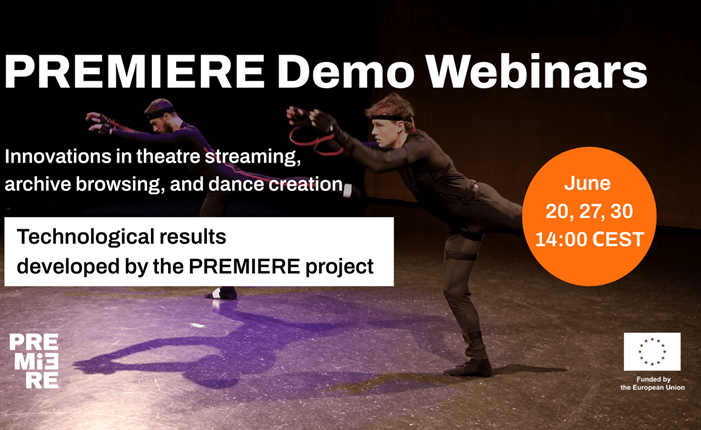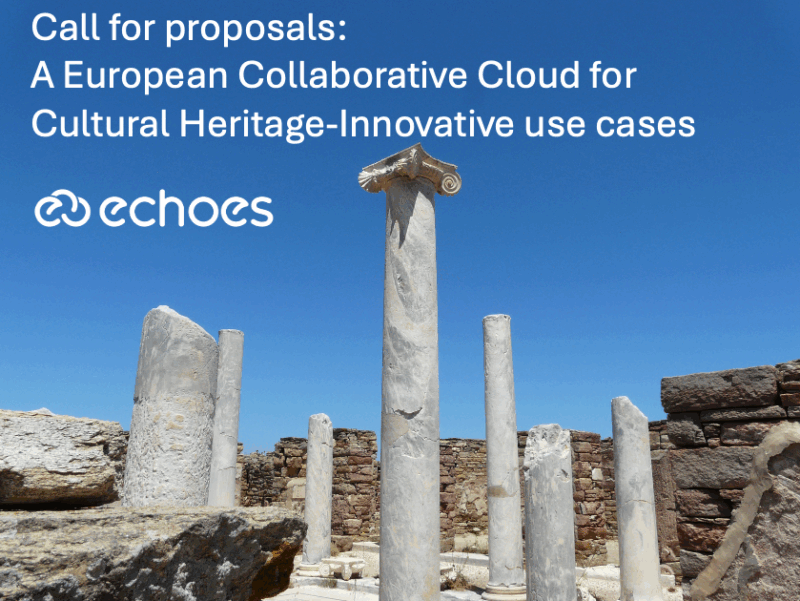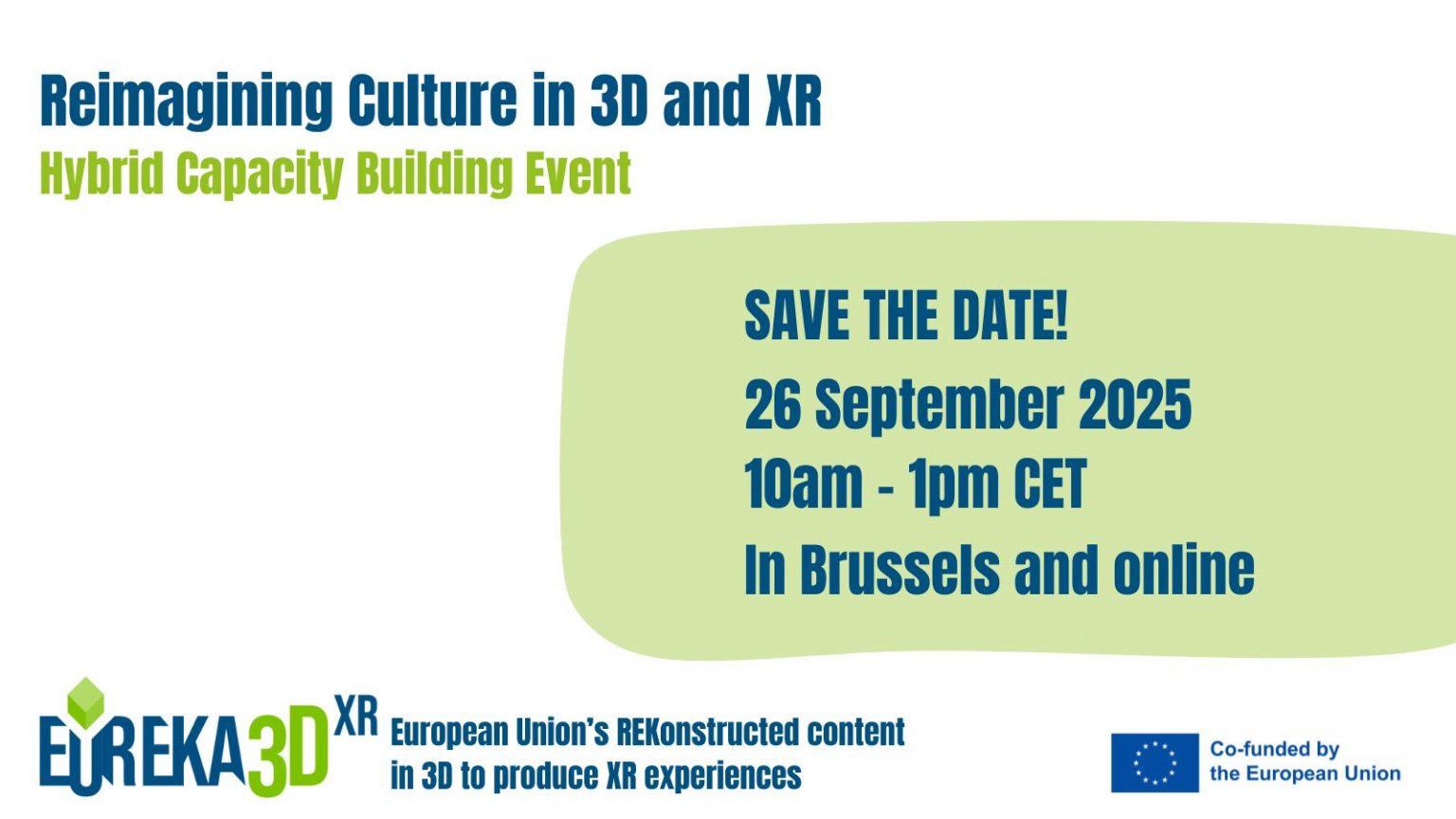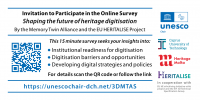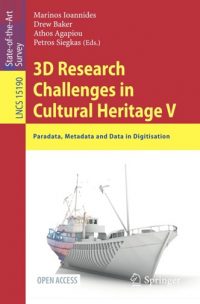-
Join the
Digital Meets Culture
Open Newsroom! If you have interesting news and events to point out in the field of digital cultural heritage, we are waiting for your contribution.
If you have interesting news and events to point out in the field of digital cultural heritage, we are waiting for your contribution.
-
Free text
-
-
Upcoming events
-
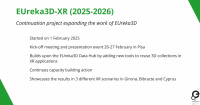 On the projects scope, results, and future plans
On the projects scope, results, and future plansDuring this year’s important event of Europeana Aggregators Forum (9-10 April 2025), Valentina Bachi from Photoconsortium delivered a presentation on both EUreka3D and EUreka3D-XR projects. The presentation went through EUreka3D project’s achievements with the developing of the EUreka3D Data … Continue reading →
 The collections feature 3D models digitised in the context of the EUreka3D project
The collections feature 3D models digitised in the context of the EUreka3D projectExplore two new source collections on Historiana, the online multimedia tool co-funded by the European Union that provides teachers with innovative, interactive resources to bring history to life and engage students. These collections feature 3D models digitised through the … Continue reading →
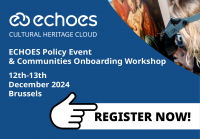 Brussels or online, December 12 - 13, 2024
Brussels or online, December 12 - 13, 2024The ECHOES Project Policy Event “Toward the Cultural Heritage Cloud” and the workshop “Onboarding communities into the Cultural Heritage Cloud” will take place in Brussels and online on 12 – 13 December 2024 and will officially launch the European Collaborative … Continue reading →
Topic: cultura

CULTURA Virtual Research Environment, three Cultural Heritage Collections, Personalisation, Entity Relationship Extraction, Entity Oriented Search, Text Normalization, Network Visualisations in the Drupal Module, Desktop Premapper, Web Premapper, FAST Annotation Service, Content Annotation Tool, Equalia, … Continue reading

IRCDL is a yearly deadline for Italian researchers on Digital Libraries related topics. The University of Padua, who organised the 2014 edition of the event, presented and disseminated the final results of the CULTURA project to the participants. Continue reading

The final results of the CULTURA project have been presented and disseminated at the 2nd AIUCD Annual Conference 2013 on Collaborative Research Practices and Shared Infrastructures for Humanities Computing, hosted by the Department of Information Engineering of the University of Padua. Continue reading
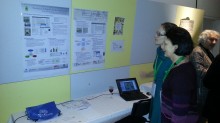
Two CULTURA posters have been presented at the NODEM Conference in Stockholm on 3 December 2013. Numerous discussions with conference participants raised awareness of the CULTURA project and its approach and solutions. Continue reading
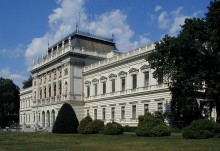
On 21st January 2014, in cooperation with the Austrian Centre for Digital Humanities at the University of Graz the TUG team had the opportunity to give a presentation on the CULTURA project to humanities students in the lecture ‘Basic Module: Digital Humanities’. Continue reading
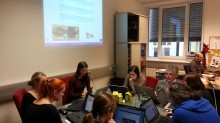
On 10th January 2014 a half-day workshop was conducted at the Austrian Centre for Digital Humanities (ZIM) at the University of Graz. Workshop participants were members of the centre, as well as researchers from the Dialect Cultures project. Continue reading

Analysis of the research tasks that were difficult or impossible with the IPSA website, but which CULTURA makes possible and easy. Continue reading
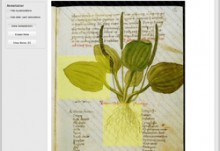
Text, illustrations, paintings and – more recently – photographs, video and audio recordings, much of them now digitised, recount many aspects of European history, from major international events to personal stories. Now, new technology is being brought to bear on these treasure troves of historical information, thanks to EU-funded researchers whose work promises to shed new light on the past. Continue reading
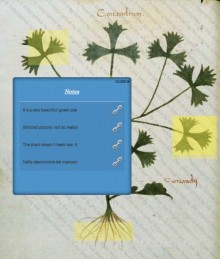
Interesting paper presented by a group of experts and researchers at the ACM Congress DocEng 2013 to introduce the main characteristics of the digital cultural collections that constitute the use cases presently in use in the CULTURA environment. Continue reading
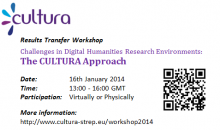
Supporting researchers in exploring and examining digitised artefacts presents many challenges in terms of understanding each researcher’s needs, performing appropriate manipulation of and uplift from content, and in presenting a suite of useful research tools to facilitate exploration. This virtual/physical workshop will use CULTURA as a case study to drive discussion by presenting demonstrations and results from the project. The outputs of this workshop will be captured and placed online. Continue reading


